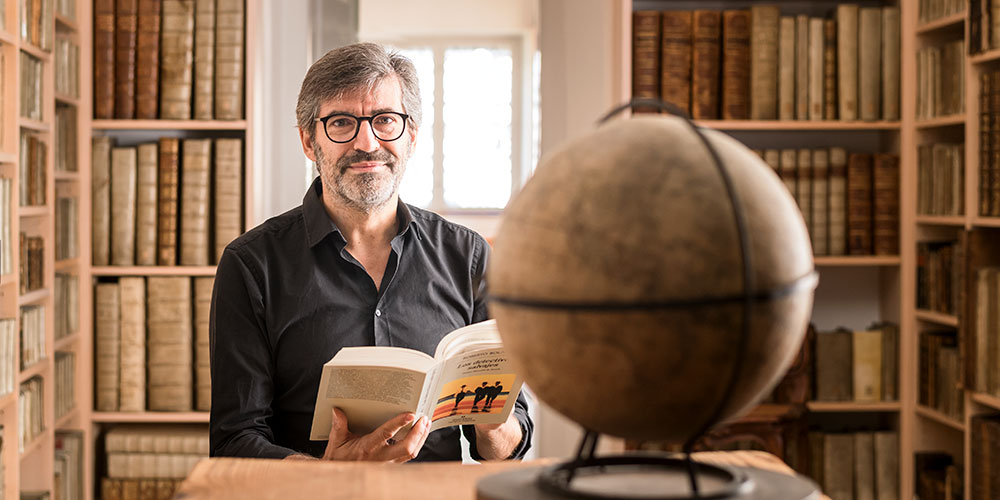Bolaño’s The Savage Detectives: An unflinching, urgent narrative.
Text: Moisés Mayordomo
My book: The theologian Prof. Dr. Moisés Mayordomo recommends the 1998 published novel "Los detectives salvajes" by the Chilean writer Roberto Bolaño.
The Savage Detectives (2007, “Los detectives salvajes”, 1998) by Roberto Bolaño, who was born in Chile in 1953 and died in Barcelona in 2003, tells a story that is almost – or entirely – impossible to summarize. Still, I’ll give it a try: in 1970s Mexico, Arturo Belano and Ulises Lima run an avant-garde literary group called the “Visceral Realists”, invoking the missing poet Cesárea Tinajero. Their adventure-filled search for the poet lasts from 1976 to 1996, taking them to the Mexican desert and other settings around the world. Ultimately, they experience an anticlimactic showdown – if such a thing is actually possible.
The characters’ quest is recounted in the form of diary entries by a young “Visceral Realist” (parts I and III) and notes from conversations with the people involved (part II). This creates an ironic panopticon of the literary scene in the time after 1970. The “revolutionary modernity” project is on its knees; literary creators are sexually hyperactive, literarily inward-looking, poor out of principle, apathetic out of conviction. Ultimately, we do not know what Visceral Realism is. Instead, we are given fragments, perspectives, judgements, satirical sideswipes and glorious episodes packed with tragic humor.
It’s a long time since I read a book that challenged me in this way. The infectious power of the language, the loss of a sense of time, the testing of hermeneutic patience, the joy of the bizarre, the sensual and the other – this book epitomizes all the wonderful experiences reading can provide. This joy is perhaps itself bizarre – the book could easily be labelled “postmodern meta-literature” – but such categorization can’t dampen the desire to read.
I had the same feeling as when reading Kafka, Nabokov or Borges: being in a storytelling world that wasn’t cooked up in a literary studies laboratory, but instead follows an unflinching, urgent narrative. We surrender ourselves to Bolaño’s world for the same reason we surrender to anesthesia at the hospital: because the doctor knows what they’re doing better than anyone else. When we return to reality after more than 600 pages, our memory is filled with scenes and moods, scents and sounds, people and places – an experience that is equal parts sensual and intellectual.
Moisés Mayordomo has been Professor of the New Testament at the University of Basel since 2014 and an instructor at the Frey- Grynaeische Institut since 2018. He teaches and researches in various fi elds of early Christianity with a particular focus on the contemporary reception of New Testament texts and motifs.
More articles in the current issue of UNI NOVA.

